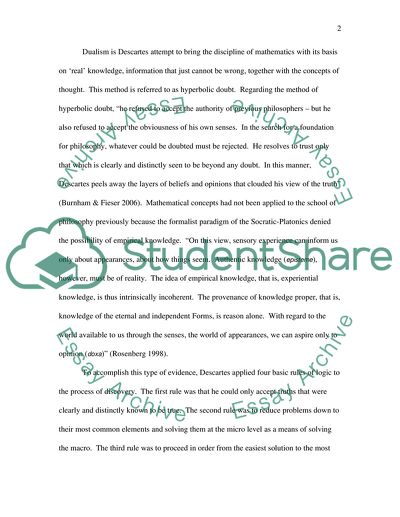Cite this document
(Descartes Dualism Fails Research Paper Example | Topics and Well Written Essays - 1750 words, n.d.)
Descartes Dualism Fails Research Paper Example | Topics and Well Written Essays - 1750 words. Retrieved from https://studentshare.org/philosophy/1734042-why-i-believe-descartes-argument-for-duelism-fails
Descartes Dualism Fails Research Paper Example | Topics and Well Written Essays - 1750 words. Retrieved from https://studentshare.org/philosophy/1734042-why-i-believe-descartes-argument-for-duelism-fails
(Descartes Dualism Fails Research Paper Example | Topics and Well Written Essays - 1750 Words)
Descartes Dualism Fails Research Paper Example | Topics and Well Written Essays - 1750 Words. https://studentshare.org/philosophy/1734042-why-i-believe-descartes-argument-for-duelism-fails.
Descartes Dualism Fails Research Paper Example | Topics and Well Written Essays - 1750 Words. https://studentshare.org/philosophy/1734042-why-i-believe-descartes-argument-for-duelism-fails.
“Descartes Dualism Fails Research Paper Example | Topics and Well Written Essays - 1750 Words”, n.d. https://studentshare.org/philosophy/1734042-why-i-believe-descartes-argument-for-duelism-fails.


